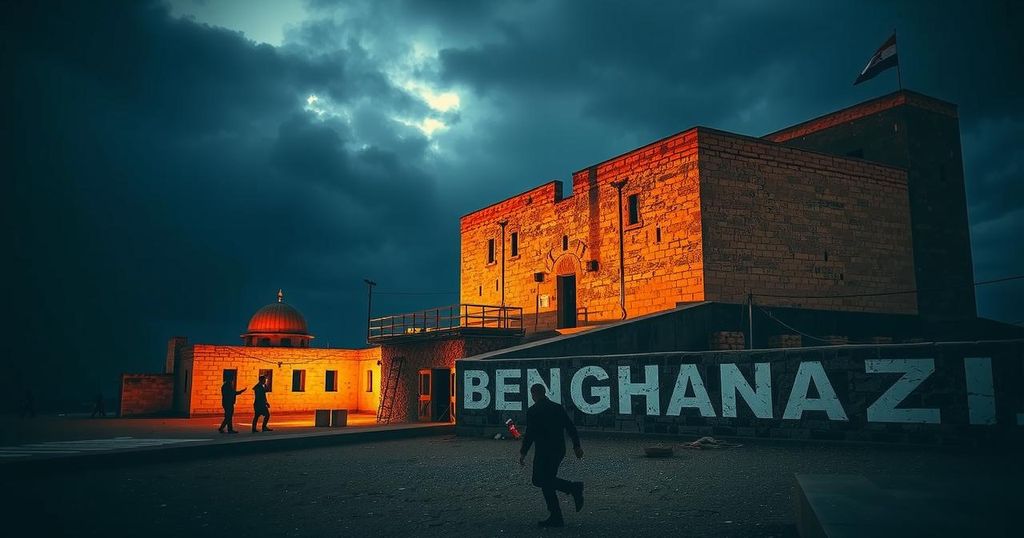The 2012 Benghazi attacks resulted in the deaths of four Americans, including Ambassador Chris Stevens, following an assault on a U.S. diplomatic compound in Libya by militants linked to al-Qaeda. The event ignited a political firestorm in the U.S. regarding diplomatic security and government response, leading to extensive investigations and reform initiatives under Secretary of State Hillary Clinton.
The 2012 Benghazi attacks occurred on September 11–12, targeting a U.S. diplomatic compound and a nearby CIA annex in Benghazi, Libya. These assaults led to the tragic deaths of four Americans, including U.S. Ambassador Chris Stevens, marking the first violent death of a U.S. ambassador since 1988. The attacks were carried out by militants linked to al-Qaeda and resulted in significant controversy and political tension in the United States, particularly as details emerged regarding the nature of the assaults and the responses by U.S. officials.
As the Libyan uprising began in February 2011, Ambassador Stevens arrived in Benghazi to engage with local rebels. On September 10, 2012, he visited the U.S. compound to further foster relations. On the night of the attack, approximately 150 Islamic militants breached the compound, leading to chaos and destruction. Stevens, along with others, sought refuge in a secure area. Tragically, Stevens was ultimately found deceased after being evacuated, while several security personnel faced severe dangers during subsequent assaults on a CIA facility.
In the aftermath of the attacks, U.S. government responses were characterized by confusion and conflicting narratives. Initial assertions attempted to link the assaults to protests against an anti-Islam video, despite a lack of evidence supporting such claims in Benghazi. Investigations indicated that the attacks were, in fact, pre-planned acts of aggression. The attack prompted extensive inquiries, with Secretary of State Hillary Clinton accepting responsibility for the failures in security protocols and implementing recommended reforms. Further investigations led by congressional committees continued for several years, resulting in a final report released in 2016.
The Benghazi attacks were a significant event in contemporary U.S. foreign relations, reflecting the volatile political climate in Libya following the 2011 revolution. This period was marked by shifts in power and the rise of extremist groups. U.S. Ambassador Chris Stevens played a critical role in engaging with Libyan rebels post-revolt. The attacks not only resulted in tragic loss but also raised questions about U.S. diplomatic security and crisis response, which reverberated through U.S. politics and led to intensive scrutiny of government actions.
In summary, the 2012 Benghazi attacks were a tragic event that highlighted the dangers faced by U.S. diplomats abroad and raised profound questions about U.S. foreign policy and security measures in conflict regions. Following the deaths of Ambassador Chris Stevens and others, the U.S. government undertook significant reforms to address these vulnerabilities. The investigations and controversies surrounding these attacks continued to shape political discourse in the subsequent years, illustrating the broader implications of foreign diplomatic engagements.
Original Source: www.britannica.com






